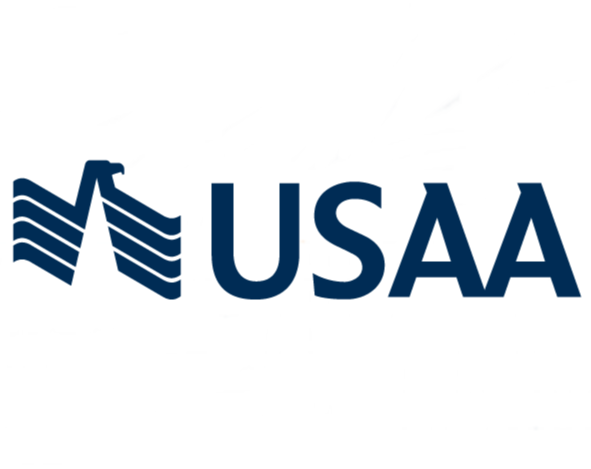Do your passions for the future include pursuing a graduate degree, but the financial investment seems too large for your budget?
West Virginia University knows that deciding to invest in a graduate degree can be a stressful venture, but we’re here to break down the barriers and address your concerns so you can make an informed decision regarding your academic goals.
But first of all, congratulations on fueling your intellectual passion by investigating in graduate school — particularly at West Virginia University.
Now, let’s get started.
Table of
Contents
Understanding the Real Cost of Graduate School
Making the decision to start a graduate level academic journey is the first step in achieving success for your preferred future. But the next major hurdle to jump through is to comprehend and plan for the financial commitment.
Perceiving graduate school as an investment for you, gives you a perspective that will guide you through the subsequent costs and commitments, both financial and personal.
Looking at the big picture will offer you the best vantage point for understanding the return on your graduate school investment.
If you’re considering grad school, you’re probably trying to calculate the possible tuition for your selected program and what the various university fees might be. There are several avenues you can take to successfully complete your payments throughout your program. The key factor for success is to pick a payment plan that works for your budget.
Along with the tuition investment, you should add in the ROI of holding an advanced degree in today’s job market to understand the real value of funding your degree.


Current Costs of Higher Education
It’s easy to forget that the price of education continues to rise — so it may be more cost efficient for you to go to graduate school now rather than later.
Why is that? Data shows that higher education costs are rising faster than any other household expense in recent decades.
It will never be more affordable to go to graduate school than it is now.
Securing an advanced degree sooner rather than later will open up more opportunities as you seek a financially rewarding career path. While your salary may increase in small increments initially, over a lifetime you will see significant financial benefits.
What’s the Rising Pay Scale from Earning a Master’s Degree?
According to the Bureau of Labor Statistics, the median weekly earnings of bachelor’s degree holders in 2020 was $1,305 — while master’s degree holders earned $1,545 per week.
In terms of annual salary, this is a difference of $67,860 per year versus $80,340 — nearly $13,000 more for master’s degree holders.
Pro Tip: Websites like Glassdoor and Payscale record updated salary scales. You can enter your field and evaluate the pay scale in your desired geographic location.
Earnings Climb High with Advanced Degrees
You may want to pursue an advanced degree to position yourself for professional advancement in the marketplace. The U.S. Census Bureau noted, that a college master's degree is worth an average of $1.5 million more in lifetime earnings than a high school diploma.
Those with a bachelor's degree will earn $2.1 million, and people with a master's degree will earn $2.5 million.
The report titled "The Big Payoff: Educational Attainment and Synthetic Estimates of Work-Life Earnings" reveals that over an adult's working life, high school graduates can expect, on average, to earn $1.2 million. While those with a bachelor's degree will earn $2.1 million, and people with a master's degree will earn $2.5 million.
Real ROI of a Graduate Degree
The number and the variety of industries that need leaders with an advanced business degree are vast: everything from finance to marketing to healthcare to cybersecurity. Additionally, some jobs even require a master’s degree at the entry level.
Here is a snapshot of the career outlooks over the next 10 years, according to the Bureau of Labor Statistics, for jobs requiring advanced degrees:
| Title | Salary | Growth |
| Accountants | $78,000 | 4% |
| Computer/Information Systems Manager | $164,070 | 15% |
| Development Manager | $120,000 | 6% |
| Economist | $113,940 | 6% |
| Elementary, Middle, & High School Principles | $101,320 | 1% |
| Financial Analyst | $96,220 | 8% |
| Financial Managers | $139,790 | 16% |
| Health Services Managers | $104,830 | 28% |
| Human Resources Managers | $130,000 | 5% |
| Industrial Engineers | $96,350 | 12% |
| Management Consultants | $95,290 | 10% |
| Marketing Managers | $138,730 | 6% |
| Market Research Analysis | $68,230 | 13% |
| Nurse Anesthetists | $125,900 | 38% |
Types of Financial Aid for Graduate School
To assist you in your search for non-WVU scholarships and awards, our graduate admissions website provides these helpful links:
ProFellowHNet Humanities and Social Sciences Funding Announcements
Pivot Funding Opportunities
You knew there were grants and scholarships available for undergraduate students, but did you know that there are also grants and scholarship opportunities for graduate-level students?
As explained on the U.S. Department of Education website, studentaid.gov, grants are need-based assistance, and scholarships are merit-based contributions to your academic investment.
By researching the many opportunities on institutional websites or information pages, you can find grants or scholarships from:
REQUEST MORE INFORMATION
Are you interested in learning more about the graduate programs at West Virginia University?
You can request more information by filling out the short form below!
Taking Advantage of Employer Financial Support
As you plan the course for financing your graduate degree, use innovative resources that may be at your fingertips. Start by simply searching your company’s handbook for information about possible tuition reimbursement plans or agreements with colleges for low-cost tuition opportunities. You can also talk to your company or institution’s human resource department to find out additional information on advanced degree support.
“Most (92%) of U.S. employers offer educational benefits, according to a survey from the International Foundation of Employee Benefit Plans (IFEBP). The most common include tuition assistance/reimbursement (63%), in-house training seminars (61%), attendance at educational conferences (51%), continuing education courses (50%), coverage for licensing courses and exams (44%), personal development courses (35%), and 529 college savings plans (10%).” — HRDive.com.
Research
Prepare notes about the graduate school of your choice, its programs, and particular courses that may benefit your current role with the company.
Ask to Pay
Communicate to your human resource team why you want their support for your education. Asking clear questions about the terms of tuition reimbursement will help you and your employer make the process flow more smoothly.
Relate
Clarify with your boss that you are pursuing a degree in a graduate program that will be mutually beneficial. The employer wants to understand how your academic goals fit into the mission of the institution where you work.
Address Concerns
Your employer will want to confirm your intentions to stay employed at the company beyond the length of your academic program. Have a conversation to discuss all aspects of your graduate pursuits in relation to your job.
Employee tuition reimbursement programs are increasing in popularity, especially for adults who desire to pursue graduate school. Many employers, looking to boost their collective skill set without hiring additional people, will sponsor all or part of an employee's graduate school program through tuition reimbursement.
By doing an innovative online search for additional funding resources, you will come across many corporations who have extensive tuition reimbursement opportunities.
Here are some of the top companies who provide graduate school funding:

.png)
.png)






How to Borrow Money the Smart Way
Securing a solid financial plan for your academic goals allows you to focus on learning and growing during your graduate school experience. The key factor in borrowing money for your education is to be aware of the facts vs. the myths of financial aid.
Federal Student Aid, which is a branch of the U.S. Department of Education, provides the majority of student aid.
Click on the student aid site here for detailed explanations about:
- The federal financial aid programs for graduate and professional degree students
- The basic eligibility requirements
- How to apply for financial aid
- Where to find other sources of aid (state, school, and scholarship)
- The key items to consider before taking out a student loan
How FAFSA Works for Graduate School
Filling out the FAFSA application is the first step to receiving grants, loans, and work study funds provided from the Federal Government. Many states and schools rely on Federal Aid support for their academic program success.
The fastest way to apply for aid is to visit the FAFSA.GOV website, which provides detailed information and step-by-step instructions on how to begin the application process. Make sure you have all the necessary documents and information you may need to fill out the FAFSA form. For example, you will need your social security number, your permanent resident card if you have one, any W-2 forms or records of money you earned for the previous year, and your tax records.
The FAFSA site is available in English and Spanish. Online help is also available on the website. Usually, the application process can be completed in 30 minutes or less. There is a three-minute introductory video available to view before filling out your application.

As explained on studentaid.ed.gov, the William D. Ford Federal Direct Loan is the largest federal student loan program. The loans are divided between direct unsubsidized loans and direct PLUS Loans:
- Direct Unsubsidized Loans – Eligible students may borrow up to $20,500 per school year. Graduate and professional students enrolled in certain health profession programs may receive additional Direct Unsubsidized loan amounts each academic year.
- Direct PLUS Loans – Eligible graduate and professional degree students who need to borrow more than the maximum unsubsidized loan amounts to meet their education costs may apply for a PLUS loan.
Pro Tip: It’s important to understand the difference between subsidized and unsubsidized loans — “direct subsidized loans are awarded based on need — and do not accrue interest while the student is in school or when loans are deferred after graduation. Unsubsidized loans, on the other hand, immediately and continuously accrue interest, so you’ll face a larger balance than what you borrowed if you skip in-school payments."
There may be additional aid from other Federal Agencies. Search StudentAid.gov/types for additional tips. Also, you may find that there are tax credit benefits for students enrolled in higher education.
For information regarding education tax credits go to irs.gov.
Find Funding for Graduate School at WVU
— Connect With Us!
As you consider the key questions regarding how to fund your academic and career goals, it is important to collect the facts about financial opportunities. Also, remember that the return on your personal and intellectual investment may be measured not only monetarily but also personally and professionally.
You will sharpen your skills and deepen your understanding in your field, which will situate you for a purposeful life ahead.
It is important to realize the parameters of becoming a graduate student. Know what budget will work for you, understand how the graduate program is mutually beneficial for your employer or for your career expectations, fill out applications in a clear and timely manner, and reach out to trained admissions counselors who can help you chart a path to a successful graduate school experience.
West Virginia University offers many excellent graduate programs designed to prepare you for a successful career. For a list of current programs, visit our graduate programs page. If you like what you see, use the easy five-step application process and let us tell you more about the opportunities that await you at West Virginia University.

